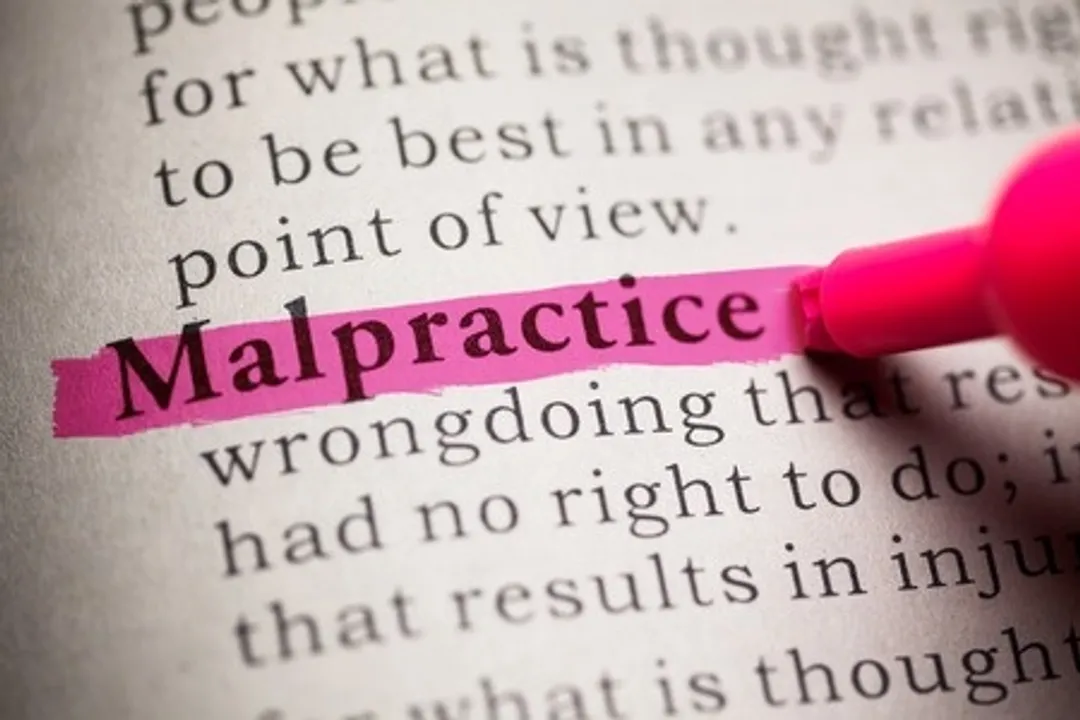Medical Malpractice Guide for Physicians

Feng Yu/123RF.com
With very few exceptions, most physicians do their best to provide quality care to their patients. However, while no one intentionally makes a mistake, errors do occur. The thing is, doctors are human, and everyone makes a mistake from time to time. Hopefully, medical errors do not result in any harm to the patients, and something can be learned from the situation.
Still, few things strike more fear into a doctor than the thought of a medical malpractice suit. Understanding what constitutes medical malpractice, how it can be prevented, and what to do if a suit is filed can help ease concerns.
What Constitutes Medical Malpractice?
Medical malpractice is more than just making a mistake. For something to be considered malpractice, a fraudulent or negligent act that injured a patient must have been committed. For example, if you ordered a lab test on the wrong patient, it’s a mistake. But if it did not harm the patient, it’s unlikely that it would be considered malpractice. On the other hand, if you performed the wrong surgical procedure on a patient, you’re probably looking at medical malpractice.
The laws for exactly what constitutes medical malpractice may vary by jurisdiction, but there are a few general elements malpractice cases must have. For instance, negligence must have occurred. Negligence means the doctor must have deviated from a reasonable standard of care. Did the doctor do the same thing most prudent doctors would have done in a similar situation? If the answer is no, negligence may have occurred.
Another element that must be proved is the injury or harm to the patient must have been substantial. Keep in mind, harm does not necessarily have to be physical. If negligence causes emotional hardship or a significant loss of income, a malpractice case may also have merit.
Precautions for Doctors
Until medical care is provided by robots, occasional medical mistakes are likely to occur. After all, even the most prudent doctor is still human. However, there are precautions you can take to decrease your chances of having a medical malpractice case ruin your practice.
For example, document your patient encounters as soon as possible after caring for the patient. Immediate documentation prevents you from forgetting something. With the implementation of electric medical records, doctors often document on a template with drop down menus. However, there are instances where a narrative is needed to explain a situation. Make sure you always document thoroughly.
It is also essential to carry malpractice insurance. Depending on where you work, you may be required to carry a specific amount of malpractice insurance. Speak to your lawyer or someone in risk management to determine how much liability insurance you need.
You can also reduce your risk of medical malpractice by following the protocols and policies of your facility. Whether you work in a practice or for a hospital, following a specific set of practice guidelines reduces the likelihood of negligence. Additionally, if you deviate from policies and have a malpractice suit filed against you, the facility is less inclined to have your back.
How to Deal With a Malpractice Suit
If you do find yourself in the midst of a medical malpractice case, there are a few things you can do to decrease the stress.
Try not to panic. Many malpractice cases do not have merit and don’t get very far. In addition, cases can take a long time. From being served to discovery and investigation, malpractice cases can take months or longer to resolve. In the meantime, try to go about your normal activities and don’t obsess over the case.
Seek representation: Notify the risk management department of the hospital or practice where you work. If you are in a small, private practice, contact an attorney. Regardless of where you work, you need professional legal representation to deal with a malpractice case.
Refresh your memory: At some point during a medical malpractice case, you may be required to provide a deposition. In order to answer questions, you need to become familiar with the patient’s chart. Review your documentation and pertinent information.
References
American Board of Professional Liability Attorneys. What is Medical Malpractice? http://www.abpla.org/what-is-malpractice Accessed July 2015.
National Institute of Health. The Physicians Guide To Medical Malpractice http://www.ncbi.nlm.nih.gov/pmc/articles/PMC1291321/ Accessed July 2015.
Related Posts
